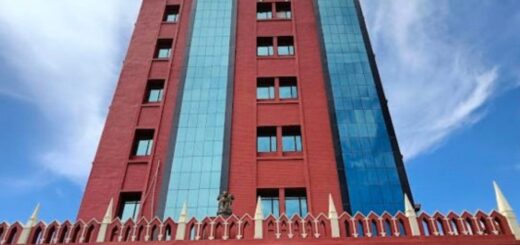Government officials support the liquor ban because it brings them significant profits, while poor people suffer under the Bihar Prohibition and Excise Act, according to the Patna High Court.

The Patna High Court noted that the Bihar Prohibition and Excise Act, 2016 has led to illegal liquor trade and other banned items. Justice Purnendu Singh, on a Single-Judge Bench, commented on how the prohibition law is being enforced. He stated, “The harsh rules of the Bihar Prohibition and Excise Act, 2016 have become useful for the police, who work alongside smugglers. New methods to trick law enforcement have developed for transporting and selling contraband. Police, excise officials, and even officers from the State Tax and transport departments benefit from the liquor ban, as it brings them significant profits.”
This observation came as the Court canceled the demotion orders of a Bihar police officer accused of failing to enforce the prohibition law properly. Advocate Anand Kumar Singh represented the Petitioner, while Advocate Shailesh Kumar represented the State of Bihar. The Court was reviewing a Writ Petition from a police officer who sought to overturn the Senior Superintendent of Police’s decision to demote him to Sub-Inspector and to restore his rank as Inspector. The key issue was whether the Disciplinary Authority was swayed by the suspension order from the Director General of Police, which implied guilt before any charges were made, and whether the post-decisional hearing violated natural justice principles and Article 21 of the Constitution.
The court accepted the police officer’s request due to procedural errors, stating, “The Director General of Police had already decided that strict disciplinary action was necessary against the petitioner. This led to the disciplinary authority imposing a penalty, as they had also made a decision based on the Director General’s earlier statement.” The court pointed out the flaws in post-decisional hearings, explaining that such hearings are biased. It emphasized that natural justice requires a hearing before a decision is made, not after. The Supreme Court has established that if authorities decide to take action before starting a departmental process, a post-decisional hearing is merely a formality and violates natural justice principles.
Additionally, it was observed that there are fewer cases against major criminals and syndicate leaders compared to the high number of cases against economically disadvantaged liquor consumers, who often suffer from hooch tragedies. Many of these individuals are daily wage earners, the sole providers for their families, and are heavily impacted by the law.
Cause Title: Mukesh Kumar Paswan v. State of Bihar [Civil Writ Jurisdiction Case 8071 of 2023] Appearance:
Petitioner: Advocates Anand Kumar Singh Ranjit Kumar Yadav and Ugresh Kumar
Respondent: Advocate Shailesh Kumar









